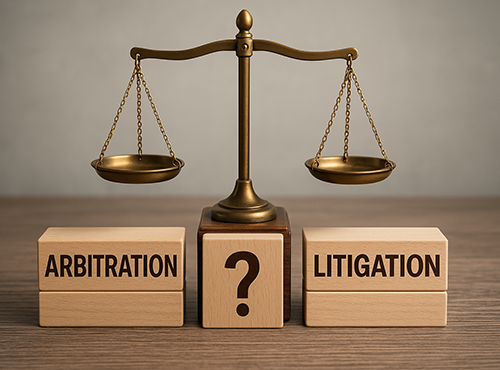Steps to File a Complaint in RERA and Protect Your Investment
The Real Estate Regulatory Authority (RERA) stands as a cornerstone in the world of real estate in India, established to enhance transparency and protect the interests of home buyers. Understanding RERA’s framework is indispensable, especially for investors looking to safeguard their investments against potential misdealings by builders.
The importance of RERA cannot be overstated; it provides a mechanism for the redressal of grievances related to real estate purchases. Navigating the RERA complaint process is crucial for anyone involved in property dealings. This process ensures that any complaint against builder in RERA is addressed formally, ensuring that the builder’s accountability is not just on paper but enforced in practice.
For property investors, being versed in how to file RERA complaint forms a critical component of risk management. Whether it’s lodging a RERA online complaint or initiating a complaint in RERA directly, understanding these procedures empowers investors to act decisively and legally. The process to file complaint against builder in RERA is designed to be user-friendly, encouraging more property owners to step forward and seek justice.
Moreover, for cases that might seem complex, knowing how to file complaint in RERA against deceptive practices or contractual breaches by developers is invaluable. The complaint under RERA act helps to maintain the market’s integrity, ensuring that every complaint is a step towards more equitable dealings in the real estate sector.
In essence, for anyone invested in the real estate market, understanding the process to complaint in RERA against builder is not just about seeking redressal. It’s about actively participating in the improvement of the industry’s standards, ensuring that every investment is secure and every agreement is honored.
Understanding Your Rights under RERA
The Real Estate Regulatory Authority (RERA) provides robust protections for property buyers, aimed at ensuring fairness and transparency in the real estate sector. One of the fundamental rights under RERA is the right to information, which mandates that buyers are fully informed about the property transactions, including accurate details about the property layout, approval status, and legal title.
Key protections offered by RERA to property buyers
- Key protections include the requirement for developers to deposit 70% of the funds collected from buyers into a separate escrow account to ensure that the money is used for the intended project, thus safeguarding the buyer’s investment.
- Additionally, RERA stipulates a standard model agreement to prevent unfair practices and terms loaded against buyers.
- Timely delivery of projects is another crucial aspect enforced by RERA, providing buyers with legal recourse in case of delays.
Importance of RERA in the real estate sector
The importance of RERA in the real estate sector cannot be understated as it not only protects buyers but also helps in enhancing the overall accountability and credibility of the construction sector. Whether it’s filing a complaint in RERA against a builder or understanding how to file a RERA complaint, these regulations ensure that the grievances of buyers are addressed promptly and efficiently, fostering a healthier investment environment. Buyers are encouraged to use the RERA online complaint system to lodge any grievances, which underscores the importance of RERA in promoting transparency and fairness within the industry. This framework not only empowers buyers but also promotes a more organized and reliable market where complaints under RERA act are taken seriously and handled effectively.
Preparing to File a RERA Complaint
Before initiating a RERA complaint, it is vital to meticulously prepare to ensure the process is smooth and effective. This preparation involves gathering all necessary documentation and understanding who is eligible to file a complaint. This step is crucial for ensuring that the grievance is addressed adequately and quickly by the regulatory body.
Documentation Needed
- Agreement Copies: Include all legal documents signed with the developer, which outline your purchase terms, rights, and obligations.
- Receipts and Proof of Payment: Collect all financial transaction records related to the property, including down payments, installments, and any other charges paid.
- Correspondence Records: Compile all written communications with the builder or developer, including emails, letters, and notices.
- Evidence of Discrepancies: This might include photos of unfinished areas, faults in construction, or amenities that were promised but not delivered.
- Promotional Material: Any brochures, advertisements, or official descriptions that highlight features or promises made by the builder.
Eligibility Criteria
- Buyer Status: You must be officially recognized as the buyer or representative of buyers in the property transaction documents.
- Project Registration: The property against which the complaint is being filed must be registered under RERA.
- Timeliness: The complaint must be filed within the timeframe specified by the RERA guidelines after the dispute arises or after the buyer becomes aware of the issue.
- Compliance with Local RERA Rules: Ensure that your complaint adheres to the specific RERA guidelines applicable in your state or territory, as these can vary.
Understanding these points is essential for any property investor or owner looking to file a RERA complaint. Proper preparation not only ensures that your complaint adheres to the regulatory requirements but also enhances the likelihood of a favourable resolution. Whether it’s a RERA online complaint or a more formal complaint filed through legal counsel, having a clear, well-documented case is key to protecting your investment and rights.
Step-by-Step Guide to File a RERA Complaint
Filing a RERA complaint involves several detailed steps from preparation to submission. Here’s how you can effectively lodge your complaint in RERA:
- Documentation Gathering: Assemble all necessary documents such as the sale agreement, payment proofs, and any communication with the builder. These documents are crucial when you file complaint against builder in RERA.
- Verify Eligibility: Ensure that your case meets the eligibility criteria for filing a complaint under RERA act. This includes being a buyer of a registered project.
- Submission of Complaint: Visit the official RERA website of your state. Navigate to the online complaint section and choose the type of complaint you wish to file.
- Fill Out the Form: Provide all required information accurately on the online form to file RERA complaint. Attach all relevant documents as evidence for your complaint in RERA.
- Review and Submit: Double-check all entered information and attached documents. Submit your complaint in RERA once everything is confirmed correct.
- Acknowledgement: Upon submission, you will receive an acknowledgment receipt of your complaint. Keep this for future reference.
- Follow Up: Regularly check the status of your complaint in RERA online and be prepared to provide additional information or attend hearings if required.
By following these steps, you can ensure that your RERA complaint against builder is filed correctly, which is crucial for addressing grievances and securing your investment.
After Filing the RERA Complaint: What to Expect
Once your RERA complaint is filed, navigating the post-complaint process requires an understanding of the timeline and potential outcomes, ensuring you’re prepared for each step.
Timeline of the Complaint Process
- Initial Review: After you file complaint in RERA, it typically takes about 30-45 days for the initial review process, during which the authority verifies the details of your complaint.
- Notice to Builder: If the complaint meets all criteria, a formal notice is sent to the builder, asking for their response.
- Hearing Schedule: Both parties are called for a hearing within 60 days of the complaint filing. This timeline can extend depending on the complexity of the case.
- Decision: RERA aims to resolve all issues within 90 to 120 days from the date of the complaint.
Possible Outcomes of the Complaint
- Resolution: The builder may agree to rectify the issue or provide compensation, resolving the complaint in RERA
- Mediation Session: RERA may arrange mediation between the buyer and the builder to reach a settlement without a formal ruling.
- RERA Order: If mediation fails, RERA will issue a formal order, which could involve penalties for the builder, directives to complete the project, or other legal remedies.
Handling the Outcomes
- Stay Proactive: Regularly check updates on your RERA online complaint status and remain actively involved in the process.
- Documentation: Keep a detailed record of all proceedings, notices, and interactions related to your complaint against builder in RERA.
- Legal Advice: Consider consulting a legal expert specializing in RERA issues to navigate complex situations or if the dispute escalates beyond initial mediation.
- Compliance and Follow-Up: Post-decision, ensure that the builder complies with the RERA ruling and follow up with RERA if compliance is delayed or insufficient.
Navigating this process effectively ensures that your grievance addressed by your RERA complaint reaches a conclusive and satisfactory resolution, protecting your rights as an investor.
How Legal Assistance Can Help
Engaging a legal advisor when filing a RERA complaint is instrumental in navigating the complexities of real estate law effectively. Here’s an expanded view on how legal assistance can be beneficial:
- Expert Legal Guidance: Legal advisors are essential in helping clients understand the intricate complaint They can provide strategic advice on whether your situation merits a complaint in RERA and the likelihood of a favourable outcome.
- Document Management: A legal expert will ensure that all your paperwork, including the purchase agreement, correspondence with the builder, and evidence of any discrepancies, is thoroughly prepared and organized. This meticulous preparation is crucial when you file complaint against builder in RERA as it strengthens your case.
- Representation at Hearings: Lawyers play a critical role during RERA hearings. Their expertise in arguing cases and understanding legal nuances can significantly influence the decision, especially in complex cases.
- Navigating Legal Challenges: The real estate sector can present numerous unforeseen legal challenges. Experienced attorneys can navigate these effectively, whether it’s a misleading RERA online complaint system or ambiguous legal language in your contract.
- Compliance and Enforcement: Following a RERA ruling, a legal advisor ensures that all directives are followed by the builder. If the builder fails to comply, your lawyer can take further legal steps to enforce the order, crucial for the effectiveness of any complaint under RERA act.
- Continuous Support and Consultation: From the initial decision to file RERA complaint to final resolution, having continuous legal support ensures that you are always prepared for the next steps, and your interests are constantly advocated for.
Utilizing legal assistance in your RERA complaint against builder not only boosts your confidence but also increases the probability of a positive resolution, safeguarding your real estate investments against potential risks and disputes. Adlegal provides legal assistance for RERA cases. For more information, go to RERA Lawyers page.
FAQs
A. To file a RERA complaint against a builder, visit your state's RERA website, navigate to the complaints section, fill out the required form, and submit it with the necessary documents.
A. You'll need to provide copies of your agreement with the builder, payment receipts, correspondence, and any evidence of discrepancies or grievances.
A. Yes, most states offer a RERA online complaint system where you can submit your grievances directly through their official website.
A. After filing, the process typically includes a review, a formal hearing, and a decision phase, which can take up to 120 days.
A. Yes, you can file a complaint in RERA on your own; however, consulting a legal expert like Adlegal can enhance the effectiveness of your complaint.
A. Valid complaints typically involve breach of contract, delays in project completion, or any fraudulent activities by the builder.
A. Yes, a RERA complaint can usually be withdrawn if the parties reach an amicable resolution outside of the formal RERA proceedings.
A. Legal advisors help in preparing documentation, providing legal representation, and ensuring compliance with RERA regulations throughout the complaint process.
Conclusion
Understanding and navigating the RERA complaint process is essential for protecting your investments in the real estate sector. Being well-informed and proactive about your rights under the RERA act, the documentation required, and the overall complaint procedure empowers you to address and resolve issues effectively. Whether it involves filing a complaint against builder in RERA or using the RERA online complaint system, each step you take is crucial.
We encourage you to seek expert legal assistance to guide you through this process. Contacting Adlegal for a consultation can significantly enhance your ability to manage and succeed in your RERA complaint endeavors. Our team is equipped to handle every aspect of the complaint process, ensuring that your grievances are addressed professionally and efficiently. If you are considering filing a complaint in RERA, do not hesitate to reach out to us. Let Adlegal help you navigate these challenges with confidence and expertise.
For detailed information about different services provided by us, go to our Services Page.



